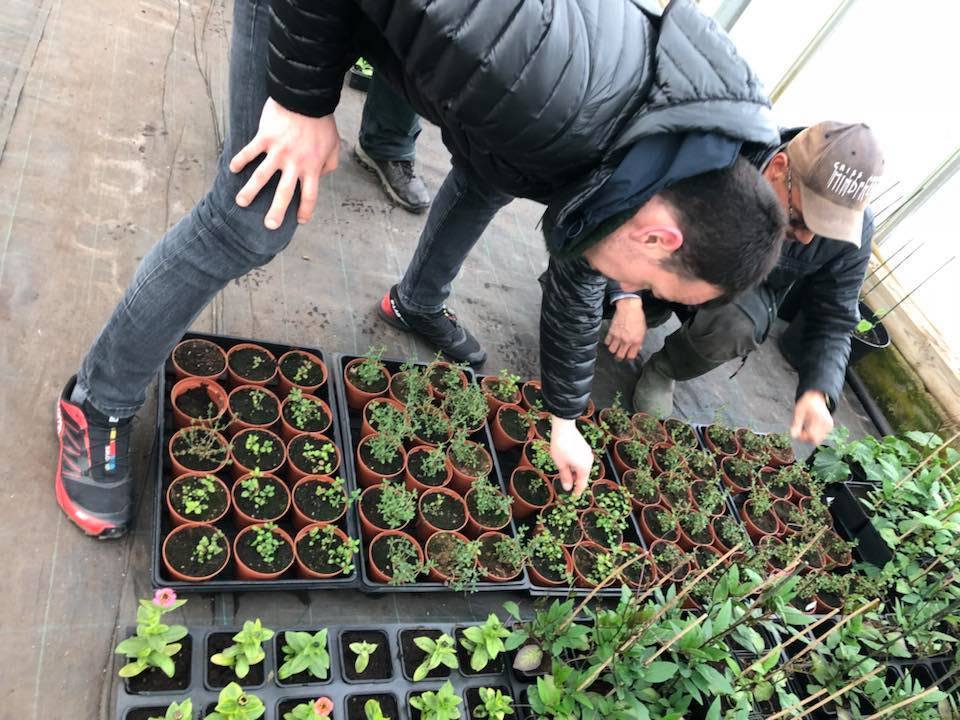The Week Ahead: Market economy
In order for Greenland to become self-sustaining, its consumers must rediscover their love for home-grown food.

Think Arctic food, and items like seal, reindeer and whale will come to mind first. For many, food security — or insecurity — is also top of mind. In the coming week, the Igasa Food Festival will seek to change the perception of both as the defining characteristics in the region.
Starting on August 25, the week-long festival will hold events in three different southern Greenlandic towns that will seek to connect the region’s farmers, herders and other food producers with potential customers, primarily retailers and restaurateurs.
Southern Greenland, thanks to a climate that is somewhat fairer than the rest of the country, has long been known for its capacity to support various forms of agriculture and herding. Its potatoes are particularly treasured.
In a typical year, some 100 tons of spuds are harvested in late summer, double the amount when they began being farmed in earnest the mid-2000s. As the volume has risen, price has fallen, and their cost is now comparable with imports from Denmark, where far larger harvests mean production prices are considerably lower.
[How ‘farms in a box’ have begun to transform the way Arctic residents get vegetables]
Familiarity, however, has bred indifference: As Greenlandic potatoes have become more commonplace, retail sales have waned. This year, for the second year running, Neqi, a wholesaler, had to destroy about half of the quantity it purchased the previous year. This, despite supermarkets importing 1,500 tons of potatoes annually.
Neqi still expects that it can reach its eventual goal of selling 300 tons of Greenlandic potatoes to retailers, but if it is to do so, consumers’ taste for locally produced food must be reawakened.
So far, the strategy for doing this has been to appeal directly to them in the supermarket with “buy Greenlandic” campaigns. To little avail.
Now, the organizers of Igasa, led by Inunnguaq Hegelund, an award-winning chef, hope that restaurants can act as middlemen of sorts. This year, the festival will focus heavily on convincing them to put more Greenlandic-grown food on their menus and into their recipes. The hope that is that once people have been introduced to professionally prepared dishes that incorporate local potatoes — as well as lamb, turnips, rhubarb, herbs, seafood and whatever else chefs can get their hands on — they will be inspired to add them to their weekly shopping lists.
Higher levels of consumption will, in turn, make it more profitable to be a producer and, eventually, they argue, make it possible for Greenland to produce all the food it needs. As far as they see it, the way to increased Greenlandic self-reliance is through their stomachs.
Unraveling a complicated web of abuse
Also this week in Greenland, on Monday child welfare authorities unveil their latest plan for preventing sexual abuse of children.
Fortunately, most children in Greenland grow up in safe, loving homes, according to child advocates. Nevertheless, numerous reports have found that abuse of various sorts remains common, despite repeated efforts to address the problem and its root causes, in particular, alcoholism, lack of parenting skills, and, in many cases, the abuser’s own past abuse.
Adding to the complicated picture is that, when it comes to sexual abuse, the culprit is sometimes other children.
[Campaign against sexual abuse aims to bring better days for Greenland’s kids]
Programs for helping abused children exist, but, once a problem is reported, getting help can take time, and more children fall through the cracks than authorities like to admit. Some parents may think twice about seeking help for their children for fear of finding themselves under suspicion.
Drafting of the strategy began last year under the previous justice minister, prior to April’s general election. It was completed under her successor, who is from a rival political party. Some issues bridge the political divide.
The Week Ahead is a preview of some of the events related to the region that will be in the news in the coming week. If you have a topic you think ought to be profiled in a coming week, please email [email protected].